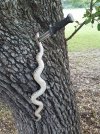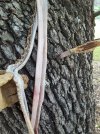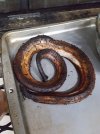Hello,
I live in a country where almost any typical type of hunting is either full prohibited or prohibited without a license. Animals like hogs, deer and foxes are the most hunted here so I guess that no one has any experience with squirrel and pigeon hunting. Or they just don't want to speak about it. Either way, I want to ask people from hunting and trapping friendly countries a few questions. I once read in survival handbook about the possibility of eating squirrels and pigeons (or other small birds) while being in survival situation and there are some things that interest me since then. One of them is the safety of eating those animals. Are squirrels or pigeons safe to eat? Do you eat them? How do you exactly make them safe to eat? Is contracting mad cow disease from a squirrel really a possibility?
I live in a country where almost any typical type of hunting is either full prohibited or prohibited without a license. Animals like hogs, deer and foxes are the most hunted here so I guess that no one has any experience with squirrel and pigeon hunting. Or they just don't want to speak about it. Either way, I want to ask people from hunting and trapping friendly countries a few questions. I once read in survival handbook about the possibility of eating squirrels and pigeons (or other small birds) while being in survival situation and there are some things that interest me since then. One of them is the safety of eating those animals. Are squirrels or pigeons safe to eat? Do you eat them? How do you exactly make them safe to eat? Is contracting mad cow disease from a squirrel really a possibility?




